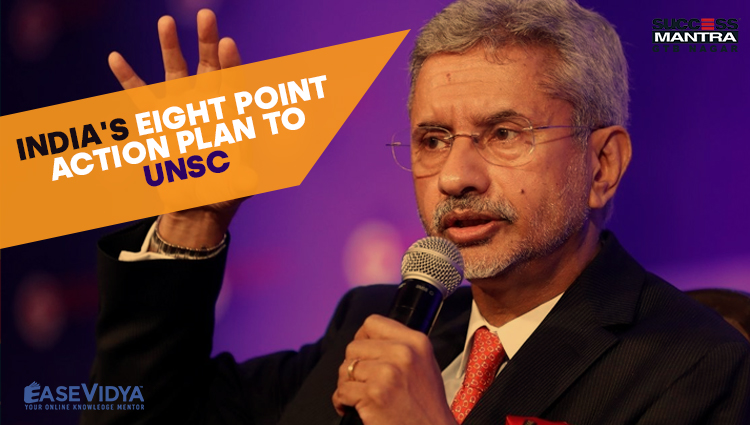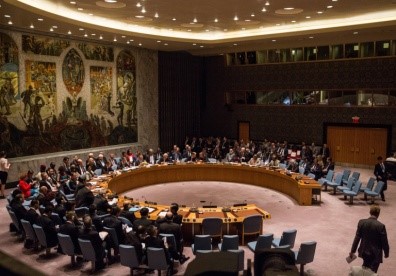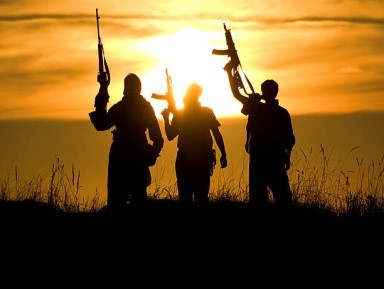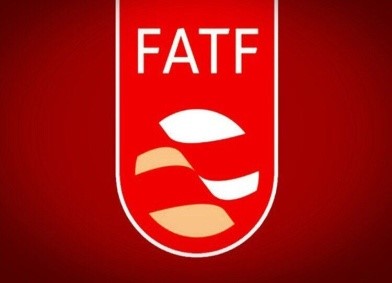
EIGHT POINT ACTION PLAN TO UNSC OF INDIA
INDIA'S EIGHT POINT ACTION PLAN TO UNSC

The External Affairs Minister of India, S.Jaishankar while speaking at the United Nations Security Council open debate on January 12, 2021, asserted that there must be no ifs and buts against terrorism and that the countries must not maintain double standards in this battle. At the open debate on ‘International Cooperation in combating terrorism 20 years after the adoption of 1373’, the union minister proposed an eight-point action plan for addressing the menace of terrorism. This was also the first time that the minister made an intervention at the UN Security Council after India assumed its membership on January 1, 2021. EAM also highlighted that the delisting and enlisting of individuals and entities under the United Nations Sanctions must be done objectively and not just for religious and political considerations. Addressed the UN Security Council chaired by Tunisia on global fight against terrorism.
The External Affairs Minister at the debate noted that there are countries that are guilty and responsible for supporting terrorism and for willfully providing financial assistance and safe heavens. He further urged the international community for holding these countries accountable. Without mentioning the name of Pakistan, he made a veiled reference to China. He also highlighted that there is a need to reform the working methods of the committees that are dealing with sanctions.
UNITED NATIONS SECURITY COUNCIL (UNSC)
The Security Council was established by the UN Charter in 1945. It is one of the six principal organs of the United Nations. The other 5 organs of the United Nations are—the General Assembly, the Trusteeship Council, the Economic and Social Council, the International Court of Justice, and the Secretariat. Its primary responsibility is to work to maintain international peace and security. The council has 15 members: the five permanent members and 10 non-permanent members elected for two-year terms. The five permanent members are the United States, the Russian Federation, France, China and the United Kingdom. Each member of the Security Council has one vote. Decisions of the Security Council on matters are made by an affirmative vote of nine members including the concurring votes of the permanent members. A "No" vote from one of the five permanent members blocks the passage of the resolution. Any member of the United Nations which is not a member of the Security Council may participate, without vote, in the discussion of any question brought before the Security Council whenever the latter considers that the interests of that member are specially affected. The council's presidency is a capacity that rotates every month among its 15 members. The council is headquartered at New York.
EIGHT POINT ACTION PLAN TO COMBAT TERRORISM

• The international community must summon the political will to combat terrorism and there must be no ifs and buts in this fight. All the member states must fulfill their obligation in international counter-terrorism conventions and instruments.
• There must be no double standards in this battle, terrorists are terrorists and there is no bad or good distinction.
• There must be a reform in the working methods of the committees that are dealing with sanctions and counter-terrorism. Accountability, transparency, and effectiveness are the need of the day.
• The international community must firmly discourage the exclusivist thinking that results in dividing the world and harms the social fabric. The council must be aware against new terminologies and the false priorities that easily dilute our focus.
• Delisting and enlisting of entities and individuals under UN sanctions must be done objectively and the proposals in this regard must be examined before circulation.
• The links between transnational organized crime and terrorism must be completely recognized and addressed. India has seen the crime syndicate that was responsible for Mumbai bomb blasts in 1993 not just provided with state protection but also enjoying the 5-star hospitality.
• To combat terrorist financing will only be as effective as the weakest jurisdiction. The FATF- The Financial Action Task Force must continue identifying and remedy weaknesses in anti-money laundering.
• Immediate attention must be given to adequate funding to UN Counterterrorism bodies. The 7th review of the UN’s Global Counter-Terrorism Strategy will be offering a significant occasion for strengthening measures for combating and preventing terrorism.
FINANCIAL ACTION TASK FORCE

The Financial Action Task Force (FATF) is an inter-governmental body established in 1989 during the G7 Summit in Paris. The objectives of the FATF are to set standards and promote effective implementation of legal, regulatory and operational measures for combating money laundering, terrorist financing and other related threats to the integrity of the international financial system. Its Secretariat is located at the Organisation for Economic Cooperation and Development (OECD) headquarters in Paris. Member Countries: it consists of thirty-seven member jurisdictions. India is one of the members.
• FATF has two lists: Grey List: Countries that are considered safe haven for supporting terror funding and money laundering are put in the FATF grey list. This inclusion serves as a warning to the country that it may enter the blacklist.
• Black List: Countries known as Non-Cooperative Countries or Territories (NCCTs) are put in the blacklist. These countries support terror funding and money laundering activities. The FATF revises the blacklist regularly, adding or deleting entries. The FATF Plenary is the decision making body of the FATF. It meets three times per year.
CHALLENGES FOR INDIA AT UNSC
• China Challenge: India is entering the UNSC at a time when Beijing is asserting itself at the global stage much more vigorously than ever. It heads at least six UN organisations and has challenged the global rules. China’s aggressive behaviour in the Indo-Pacific as well as the India-China border has been visible in all of 2020. China has tried to raise the issue of Kashmir at the UNSC.
• Post Covid World Order: As the global economy is in shambles with various countries facing recession and health emergencies. To handle all these situations need careful strategy to move the world out of this burdening challenge.
• Balancing USA and Russia and Unstable West Asia: With the situation deteriorating between USA and Russia and increasing tensions between USA and Iran, it will be tough situation to handle for India. India needs to uphold rule based world order with due respect to human rights ensuring the national interest.












0 Comment